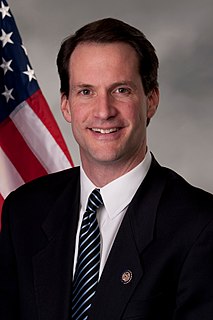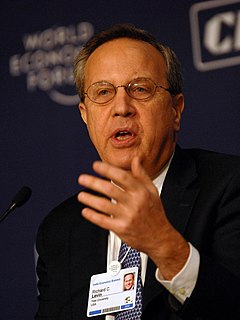A Quote by Joseph Stiglitz
President Trump sees the world in transactional and zero-sum terms - if something is good for China, it must be bad for the U.S. By contrast, economists see the world in much more nuanced ways: if globalization is well-managed, it can be a positive-sum game, where both the U.S. and China gain; if it is badly managed, it can be negative-sum.
Related Quotes
Trump sees the world in terms of a zero-sum game. In reality, globalisation, if well managed, is a positive-sum force: America gains if its friends and allies - whether Australia, the E.U., or Mexico - are stronger. But Trump's approach threatens to turn it into a negative-sum game: America will lose, too.
Notable enough, however, are the controversies over the series 1 - 1 + 1 - 1 + 1 - ... whose sum was given by Leibniz as 1/2, although others disagree. ... Understanding of this question is to be sought in the word "sum"; this idea, if thus conceived - namely, the sum of a series is said to be that quantity to which it is brought closer as more terms of the series are taken - has relevance only for convergent series, and we should in general give up the idea of sum for divergent series.
One problem with politics is that it is a zero sum game, i.e. politicians argue how to cut the pie smaller and smaller, by reshuffling pieces of the pie. I think this is destructive. Instead, we should be creating a bigger pie, i.e. funding the science that is the source of all our prosperity. Science is not a zero sum game.
Globalization is a bottom-up phenomenon with all actions initiated by milions of individuals, the sum total of which is globalization. No one is in charge, and no one can anticipate what the sum of all the individual initiatives will be before the result manifest. A global economy can only be the result of spontaneous order.
On the political front, of course it's a zero-sum game. If it's all white males holding positions, you bring 10 women in, then it's, 'Women are coming!' Get 10 blacks and it's, 'Blacks are coming!' 'Hispanics are coming!' Zero-sum game. The seatmates might change but the chairs don't move. In the economy, the number of chairs can actually increase.



































